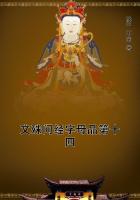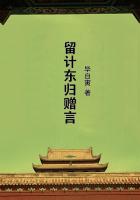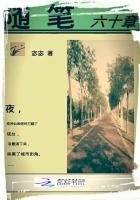The Individual Factors of Imputation (continued). IV. -- The Imputation to Cost Goods and to Monopoly Goods What has been said as to the influence of supply, of demand, and of technique, gives sufficient evidence that, in the imputation of return, there is a certain category of production goods particularly favoured, and another peculiarly prejudiced.
The line of division, however, which separates these two categories cannot be drawn with any great strictness; the transferences from one group to the other are imperceptible; the grouping changes with the change of circumstances; and, even within the separate groups, there is the same division. Goods which are favoured above many others may nevertheless be quite the reverse in comparison with just as many more.
The first group is composed of those goods to which attaches a natural monopoly (as opposed to a legal monopoly).
Characteristic of this group is the comparative rarity of such goods as compared with the demand for them, or, it may be, the comparatively small quantity that can be produced. As examples of goods which have pronouncedly the character of monopoly may be mentioned the following; -- scarce raw materials, land exceptionally situated, the work of one peculiarly gifted, --particularly an artist or scientific worker of the highest rank, -- a secret and at the same time successful process (or, more exactly, the exclusive knowledge of such a process, whereby the persons who have it obtain a preference over others), and, finally, works of human hands, which, on account of their size, or on account of technical difficulties, cannot be repeated.
Goods which belong to the second group may be called "Cost Goods," inasmuch as they are the elements in the calculations of cost.(1*) They are goods easily accessible and abundant, or goods whose production can be indefinitely increased. The following goods have markedly this character; -- unskilled labour, coal, wood, the common metals, and also land devoted to industrial undertakings where there is no question of any particular advantage in situation. Things which are to be had in superfluity are not counted among cost goods; indeed they are not reckoned among economic goods at all. While monopoly goods are specific elements of individual industries, cost goods are the common cosmopolitan and indispensable powers and materials of production.
Articles whose ****** requires no monopoly goods may be produced, comparatively to others, in the largest quantities; on the other hand, those will be produced in the smallest quantities which demand productive factors of a peculiarly marked monopoly character, even although cost goods, subject to very little limitation, should be employed along with them. Assuming equal wants, then, the value of goods produced under monopoly must, by reason of their small available quantity, stand comparatively high; and consequently, to monopoly goods, as compared with cost goods, must generally be imputed a contribution of higher value.
This is the first advantage which monopoly goods enjoy. In the course of economic development, however, many other advantages accrue to them, as the development itself accentuates the gulf which naturally exists between them.
In the ordinary course of economic history the available supply of many monopoly goods increases but slowly, or not at all, -- in many cases, indeed, it becomes smaller; whereas the available supply of many cost goods increases rapidly and uninterruptedly. We have here two causes which widen the difference between the two imputations, inasmuch as the contribution imputed varies for every good in inverse ratio to the change in its supply, and in direct ratio to the change in complementary wealth. Now in the ordinary course of economic history, wants are continually increasing, and the numbers of those who want are continually increasing, while, at the same time, technique is always becoming more perfect. Both of these facts create a tendency towards raising the value of production goods. This tendency affects monopoly goods unreservedly, but, in the case of cost goods, on the other hand, it is frequently outweighed, -- either immediately or after a certain lapse of time, -- by the opposing tendency which comes from their increase. Generally speaking, cost goods gain only by such rises in the value of return as are wide-reaching enough to extend beyond the sphere of one single industry. Rises in value which are confined to individual branches of production are completely absorbed, as we have shown (Book III. chapters x, and xi) by the specific elements in that branch, by the monopoly goods. And even should there be no such elements -- as sometimes happens -- an increase of value in one particular industry has comparatively little effect upon elements which are simultaneously employed in a great many.














